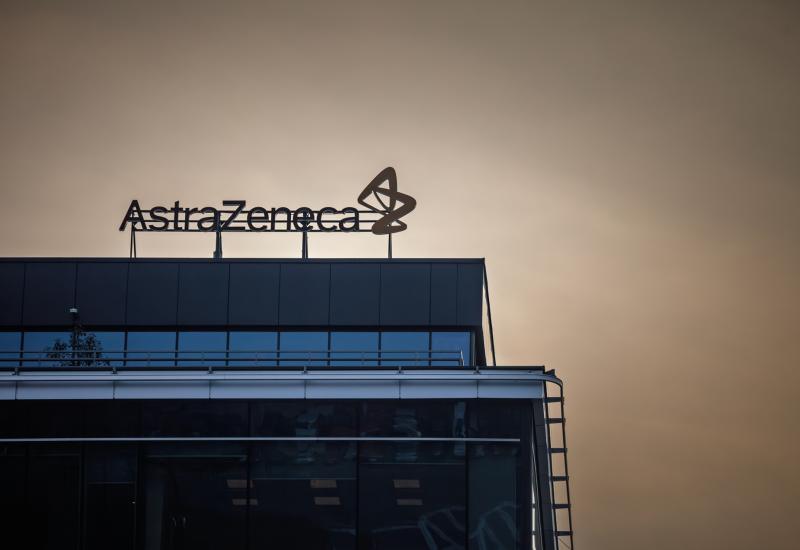
Exelixis claims a next-generation colorectal win
Zanzalintinib prevails in all comers, but full data will show if the win was driven by a subgroup.
Zanzalintinib prevails in all comers, but full data will show if the win was driven by a subgroup.

Exelixis, facing questions about its Cabometyx successor zanzalintinib, claimed a win on Sunday in the phase 3 Stellar-303 trial in relapsed colorectal cancer.
The company will hope that this scotches doubts about whether the project works in patients with liver metastases, though this question still remains unclear. Until recently, the trial’s primary endpoint was overall survival in patients without liver metastases, but Exelixis said that a combination of zanzalintinib and Tecentriq prevailed in the intent-to-treat population, which also includes patients with liver mets.
OS in patients without liver mets is now a co-primary endpoint, and this will proceed to the planned final analysis, the company added.
This is relevant because in January Exelixis reported lacklustre data with zanzalintinib plus Tecentriq in a late-line colorectal cohort of the phase 1 Stellar-001 trial – but results were more impressive in patients without liver mets. The ORR in that subgroup was 18%, versus 7% in the entire patient population.
The question will now be how much the overall benefit in Stellar-303 was driven by the subgroup of patients without liver mets. Hopefully this will be answered when full data from the study are presented at an upcoming medical meeting, though it's also possible that data in liver mets patients will never be split out.
Still, Exelixis's stock closed up 7% on Monday.
Renal next
Cabometyx isn’t approved in colorectal cancer, but it is marketed for renal cancer, where zanzalintinib’s next big readout will come, from the first-line Stellar-304 trial testing an Opdivo combo.
This combination, in the same setting, showed an ORR of 63% and a median progression-free survival of 18.5 months in the phase 1 Stellar-002, presented at ASCO. These figures looked slightly better than a Cabometyx/Opdivo combo in the analogous Checkmate-9ER trial.
However, the main aim with zanzalintinib is to improve on Cabometyx’s safety profile, and it’s unclear whether the new project is any better on this point. Stellar-002 found a higher rate of grade 3 and 4 treatment-related adverse events, but a lower rate of discontinuations than Cabometyx/Opdivo in Checkmate-9ER.
There are questions about whether this profile will be enough to get doctors to switch from Cabometyx to zanzalintinib, if the latter is eventually approved. Cabometyx, which sold $1.8bn in 2024, is set to come off patent in 2030; Exelixis has said that zanzalintinib could make $5bn by 2033.
The company will also decide this year whether to advance zanzalintinib in head and neck cancer, based on the Stellar-305 trial, while Merck & Co is set to begin two pivotal studies testing the project in combination with its HIF2α inhibitor Welireg in renal cancer, although there are no details as yet.
Notable zanzalintinib studies
| Trial | Setting | Regimen | Primary endpoints | Data |
|---|---|---|---|---|
| Ph1 Stellar-001 | Solid tumours | Monotx & combos | MTD, ORR, PFS, OS | Data at ASCO-GI 2025 in relapsed CRC: ORR 7% with zanza + Tecentriq (18% in pts without liver mets) |
| Ph1 Stellar-002 | Solid tumours | Monotx & combos | Safety, ORR, PFS, OS | Data at ASCO 2025 in 1st-line renal: ORR 63% with zanza + Opdivo |
| Ph3 Stellar-303 | Relapsed non-MSI-high CRC | + Tecentriq, vs Stivarga | OS (ITT & non-liver mets – earlier had sole primary in non-liver mets pts) | Toplined Jun 2025: met co-primary OS endpoint in ITT population; study continues in non-liver mets pts |
| Ph3 Stellar-304 | 1st-line renal cancer | + Opdivo, vs Sutent | ORR, PFS | Data due H2 2025 |
| Ph2/3 Stellar-305 | 1st-line PD-L1+ve head & neck cancer | + Keytruda, vs Keytruda | PFS, OS | Ph2 data for ph3 go/no go decision due H2 2025 |
| Ph2/3 Stellar-311 | 1st-line neuroendocrine tumours | Vs everolimus | PFS | To start Jul 2025 |
| Unnamed ph3 | Renal cancer | + Welireg | TBA | To start H2 2025 (by Merck) |
| Unnamed ph3 | Renal cancer | + Welireg | TBA | To start H2 2025 (by Merck) |
Note: CRC=colorectal cancer; MTD=maximum tolerated dose. Source: OncologyPipeline & clinicaltrials.gov.
2305













